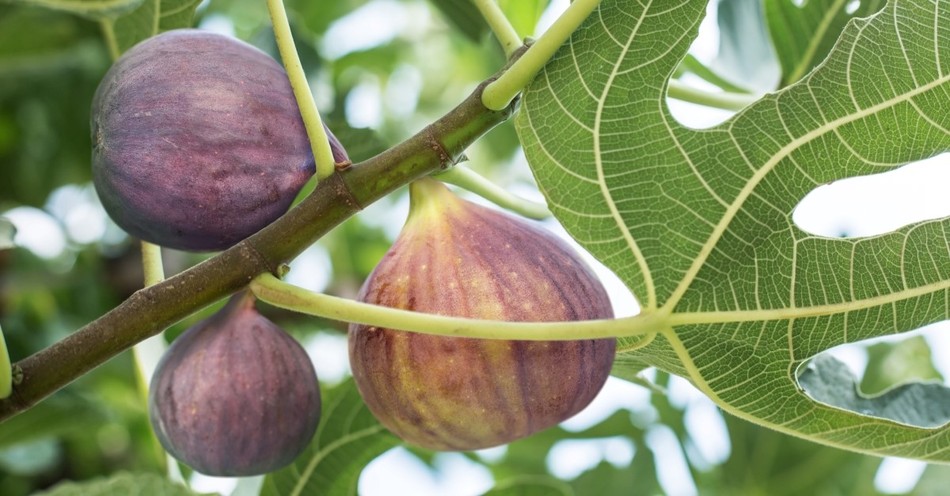Early in the morning, as Jesus was on his way back to the city, he was hungry. Seeing a fig tree by the road, he went up to it but found nothing on it except leaves. Then he said to it, “May you never bear fruit again!” Immediately the tree withered (Matthew 21:18-19).
Fig trees are for making figs.
Pretty simple, really. We plant apple trees because we want apples, peach trees because we want peaches, orange trees because we want oranges, and fig trees because we want figs. We might as well ask what good is an apple tree that doesn't produce apples? You might as well cut it down. Or curse it, as Jesus did the fig tree in Matthew 21:18-19.
How did Jesus know the fig tree was barren? Because the leaves and the fruit typically appear at about the same time. To see a fig tree covered with leaves but with no fruit meant that it was barren.
Symbolism and Context of the Cursed Fig Tree
Three insights will help us understand this story:
- First, in the Old Testament, the fig tree often stood as a symbol for the nation of Israel (Jeremiah 8:13; Hosea 9:10).
- Second, we also need to observe that the cursing of the fig tree occurs on Monday of Jesus's Passion Week, four days before his crucifixion.
- Third, this story is placed next to the story of Jesus cleansing the temple in Jerusalem (Matthew 21:12-17). The money lenders had turned the Lord's house into a den of thieves. They were profiteers who exchanged foreign currency and also sold the animals that worshipers from distant towns would buy to sacrifice before the Lord. By shrewd marketing, they could charge exorbitant rates and make a killing off the pilgrims who came to worship. The whole scene angered our Lord because he knew that the temple should be a house of prayer for all nations.
The Meaning of the Parable of the Fig Tree
Cursing the fig tree was Jesus's way of saying that the whole nation had become spiritually barren before the Lord. They had the form of religion but not the reality. They knew the right words to say, but their hearts were far from God.
Another Bible Passage About the Parable of the Fig Tree
Comparing and contrasting two accounts of the same story gives readers the benefit of different perspectives and details. In Mark’s account (Mark 11: 12-14), we read the fig tree parable before we get to Jesus clearing the temple courts. While Matthew’s account, the order of the story is swapped.
“The next day as they were leaving Bethany, Jesus was hungry. Seeing in the distance a fig tree in leaf, he went to find out if it had any fruit. When he reached it, he found nothing but leaves, because it was not the season for figs. Then he said to the tree, ‘May no one ever eat fruit from you again.’ And his disciples heard him say it.” (Mark 11: 12-14).
Cultural Importance of Fig Trees
According to Smith’s Bible Dictionary, the fig tree was very common to the area both in Biblical times and still today. And it was common knowledge in Jesus’ time that if you saw leaves on a fig tree, you could also expect fruit unless the tree was barren.
Throughout the Bible (1 Kings 4:25; Micah 4:4; Zechariah 3:10), sitting under their own fig tree was a common phrase symbolizing peace and prosperity.
Excerpted from "How Did The Fig Tree Wither So Quickly?" by Keep Believing Ministries (used by permission).
Why Did Jesus Expect the Fig Tree to Have Figs?
Various scholars have considered why it was that the fig tree had no figs.
E.W.G. Masterman explains how the fact Jesus was in Jerusalem during the Passover fits with botanical seasons:
"The miracle of our Lord (Matthew 21:18-20; Mark 11:12,13,10,21) which occurred in the Passover season, about April . . . When the young leaves are newly appearing, in April, every fig- tree which is going to bear fruit at all will have some taksh ("immature figs") upon it, even though "the time of figs" (Mark 11:13 the King James Version), i.e. of ordinary edible figs-- either early or late crop--"was not yet." This taksh is not only eaten today, but it is sure evidence, even when it falls, that the tree bearing it is not barren. This acted parable must be compared with Luke 13:6,9; now the time of judgment was surely coming, the fate of the fruitless Jewish nation was forcibly foretold."
(Excerpted from International Standard Bible Encyclopedia - Fig Tree)
John Lightfoot provides more details on how the season affected whether the fig tree had any fruit, suggesting that Jesus had some hint it had unseasonal figs even though it was April:
"Christ, therefore, came to the tree seeking fruit on it, although the ordinary time of figs was not yet; because it was very probable that some fruit might be found there. Of the present year, indeed, he neither expected nor could expect any fruit, when it was so far from being the time of figs, that it was almost five months off: and it may be doubted whether it had yet so much as any leaves of the present year. It was now the month Nisan, and that month was the time of the first putting out of leaves; so that if the buds of the leaves had just peeped forth, they were so tender, small, and scarce worth the name of leaves (for it was but the eleventh day of the month), that to expect figs of the same year with those leaves had not been only in vain, but ridiculous. Those words seem to denote something peculiar, having leaves; as if the other trees thereabout had been without leaves, or, at least, had not such leaves as promised figs. Mark seems to give the reason why he came rather to that tree than to any other; namely, because he saw leaves on it, and thereby hoped to find figs."
(Excerpted from A Commentary on the New Testament From the Talmud and Hebraica by John Lightfoot)
As Masterman alludes to, many scholars believe the fig tree symbolized something larger which Jesus was using to make a point: the Jewish nation, which experienced terrible destruction in 70 AD, when the Romans sacked Jerusalem. In this interpretation, the destruction of Jerusalem is seen as judgment on the Jews for rejecting Christ as savior (proving they lacked spiritual fruit, despite appearances). Other scholars argue this interpretation leans into anti-Semitism, blaming the entire Jewish race for Christ's crucifixion.
Matthew Henry provides another possible symbolic application in his commentary:
"This cursing of the barren fig-tree, represents the state of hypocrites in general; and so it teaches us, [1.] That the fruit of fig-trees may justly be expected from those that have the leaves. Christ looks for the power of religion from those that make profession of it; the favour of it from those that have the show of it; grapes from the vineyard that is planted in a fruitful hill: he hungers after it, his soul desires the first ripe fruits. [2.] Christ's just expectations from flourishing professors are often frustrated and disappointed; he comes to many, seeking fruit, and finds leaves only, and he discovers it. Many have a name to live, and are not alive indeed; dote on the form of godliness, and yet deny the power of it. [3.] The sin of barrenness is justly punished with the curse and plague of barrenness; Let no fruit grow on thee henceforward for ever. As one of the chiefest blessings, and which was the first, is, Be fruitful; so one of the saddest curses is, Be no more fruitful. Thus the sin of hypocrites is made their punishment; they would not do good, and therefore they shall do none; he that is fruitless, let him be fruitless still, and lose his honour and comfort. [4.] A false and hypocritical profession commonly withers in this world, and it is the effect of Christ's curse; the fig-tree that had no fruit, soon lost its leaves. Hypocrites may look plausible for a time, but, having no principle, no root in themselves, their profession will soon come to nothing; the gifts wither, common graces decay, the credit of the profession declines and sinks, and the falseness and folly of the pretender are manifested to all men."
(Excerpted from Matthew Henry Commentary on the Bible - Complete)
For more details on this Bible story, read the following:
Why Does Jesus Curse the Fig Tree?
What Is the Spiritual Meaning of the Empty Fig Tree?
Jesus Curses A Fig Tree - Bible Story
Photo Credit: ©Getty Images/Valentyn Volkov
This article is part of our Bible resource for understanding the significance and meaning of biblical phrases and ideas. Here are our most popular Bible articles to grow in your knowledge of God's Word:
Promises of God in the Bible
Is "This Too Shall Pass" in the Bible?
What Was the Ark of the Covenant?
Top 10 Bible Stories for Kids
“Iron Sharpens Iron” in Proverbs 27:17
"Fearfully and Wonderfully Made" in Psalm 139
“Be Still and Know That I am God” in Psalm 46:10
"No Weapon Formed Against Me Shall Prosper" - Isaiah 54:17



